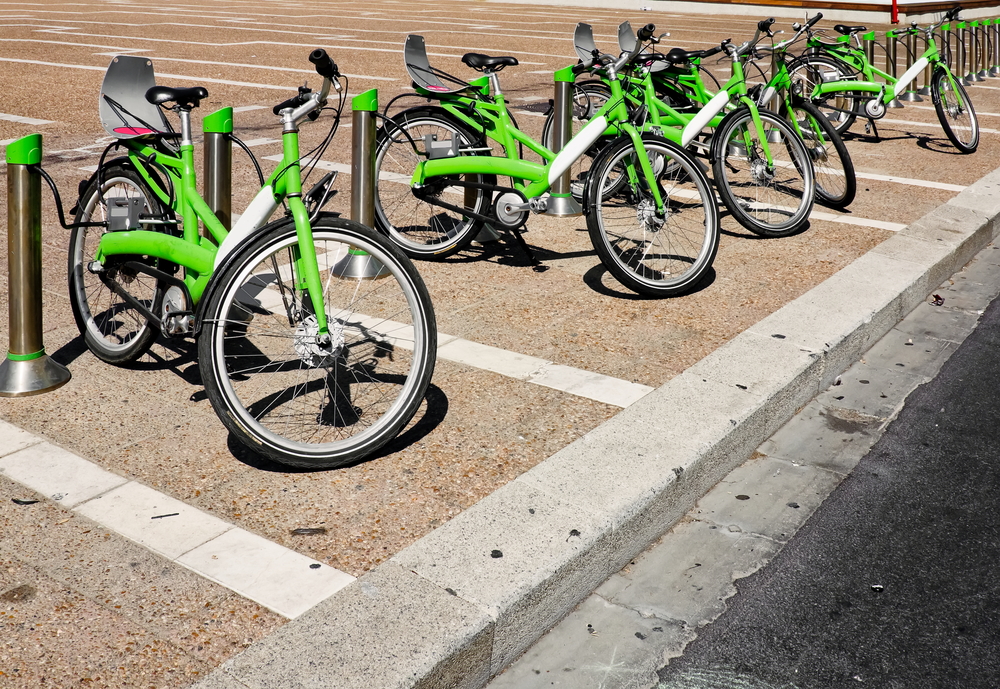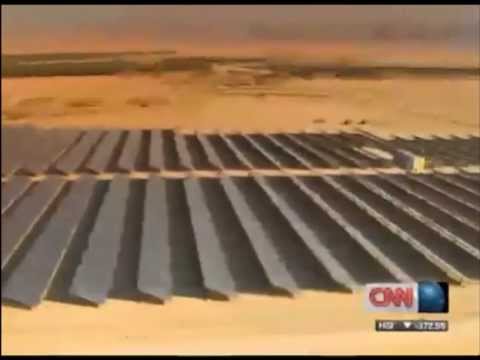
Editor’s note: Scott Cooney, the CEO of Important Media, is currently on a bloggers tour of Israel, and will be reporting back for us during his week there.
Israel, a country perhaps best known for its religious heritage and rich history, has quietly been taking steps toward a sustainable future. The country is not large, with an expected population of just 11 million residents by 2030 (from 8 million nowadays), but it faces some extreme challenges in terms of sustainability. First and foremost on many Israelis’ minds is water, given its largely desert environs, but food security and energy security rank extremely high as well, given the Middle East’s geopolitical instability.
As a member of the OECD, Israel is considered a developed nation, with a GDP that ranks among the top 50 nations in the world, and one of the highest standards of living among Asian economies. But these figures mask some significant risk, as 61% of Israel’s economic activity is based on foreign trade. Manufacturing and agriculture have been outsourced to a large degree, making Israel dependent on imports of everything from consumer packaged goods to food and energy. The country has developed a sustainability plan, called Outlook 2030 (pdf), that defines sustainability as the nexus between well being, the environment, and resilience, rather than the traditional social, environmental and economic triumvirate that typically defines the subject.
Israel has an income disparity gap that is 25-fold, according to the report, meaning the top 10% make 25x what the bottom 10% make. The study’s authors concluded that 47% of the country’s environmental impacts are caused by the consumption patterns of the top 10%, and that as lower tiers improve their standard of living and look to emulate richer Israelis, those impacts will be greatly magnified.
The State of Things
With the economic disparity, lack of freshwater, and geopolitical climate, sustainability seems to be gaining widespread notoriety as a top priority for the country. But due to these pressures, the Israelis have been pioneers in many clean technologies. Here’s a short list of some major accomplishments so far:
- Drip irrigation was invented in Israel, and is now a water conservation fixture in landscapes around the world
- Israel has developed some of the world’s leading reverse osmosis water desalinization plants, including one of the world’s largest, the Ashkalon Seawater Reverse Osmosis facility, which provides drinking water for over 1M Israeli citizens
- By the end of 2013, a whopping 85% of the country’s freshwater will come from desalinization
- Over 90% of Israeli homes use solar to heat the water they use
- The country has been planting trees to fight deforestation, desertification, and climate change, as well as to increase resources. It is one of the few countries in the world with more trees now than at the beginning of the 20th century
- At 3%, Israel’s solar energy as a share of total consumption is one of the highest in the world
- Shai Agassi and his team at Better Place can be given credit for bringing worldwide attention to battery swapping technology to allow electric vehicle owners to swap out batteries (and thus recharge) in 4 minutes, as opposed to the several hours needed for a conventional electric car (and it seems that one of Israel’s preeminent green businessman will keep Better Place afloat after its reorganization)
- Tel Aviv, the nation’s financial center, has added over 100 km of bike lanes in the last decade
“This land is made for solar power”
One of the best locations in the world for solar power, Israel is a sun-drenched country with wide open desert lands. One of the big pioneers in the commercial solar industry there is the Arava Power Company. Founder Yosef Abramowitz (mentioned above, as the one who recently purchased the failing assets of Better Place), solar pioneer, was featured as one of CNN’s Green Pioneers last year:
It all bodes well for Israel. For the next week, I’ll be reporting from the Middle East about the state of sustainability in Israel. Stay tuned to Sustainablog and the rest of the Important Media Network, and follow me on Twitter for more. I wish to thank the good folks at Kinetis, for giving me access to Israel’s sustainability leaders. Kinetis is a nonpolitical organization committed to widening the lens through which Israel is perceived.
Images from Shutterstock


Jan Peter Bergkvist
Just back from a 12 days trip in Israel (my first) I enjoyed reading the blog article and agree but would also like to add the obvious challenge with litter across the country and the integration issues and… the lack of understanding of sustainability. In Tel Aviv I met with the TNS people and for sure there is a need of more general sustainability knowldege that I am sure they can contribute with. See: http://youtu.be/B5NiTN0chj0
Christina
“The country has been planting trees to fight deforestation, desertification, and climate change, as well as to increase resources. It is one of the few countries in the world with more trees now than at the beginning of the 20th century”
In the same time Israel uprooted 800.000 Olive trees in the same promised land.
You need to deal with Politics until the wall and seperation is down. Who does not know how to deal with Humans shouldnt start arguing about plants.
http://visualizingpalestine.org/infographic/Olive-Harvest
Jim Carr
I am a professor at the University of Arkansas at Little Rock in the Construction Management Department. I am very interested in what Israel is doing in regard to sustainability. Not only in buildings but in all forms of environmental issues. I am planning on going to Israel late this summer and would appreciate any contact information that could be provided so I can arrange visits to get first hand information. Thank you.
Scott Cooney
Hi Jim,
Excellent! Enjoy! You’ll find some great innovations, but also some challenges that are pretty common in sustainable development. Overall, I was pretty impressed, though. Here’s a few more articles you might want to check out from my trip there:
Check out a list of other cool clean tech innovations from my recent Israel trip (as part of a sustainable blogger tour, courtesy of Kinetis, who arranged the visit for me) here:
Kibbutz Lotan: An Embodiment of Being an EdenKeeper (from EdenKeeper.org)
Ariel Sharon Park, A Revolution in Waste Management and Urban Planning (from PlanetSave.com)
Agriculture Where Plants Can’t Grow: Israel’s Arava Valley (from Inspired Economist)
Israel’s First LEED Platinum Building Underway: A Living Laboratory for Environmental Studies (from Green Building Elements)
Coolest Passive Cooling Tower You’ll Ever See (from Green Building Elements)
Have a great trip! I’ll ping you via email with some contacts.
-S